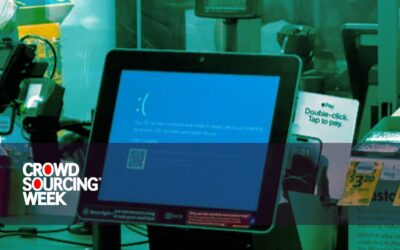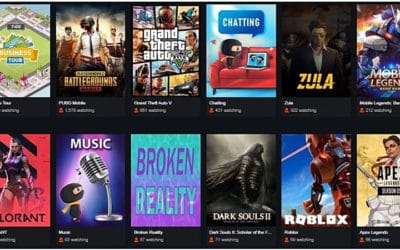Check out our curated Weekly Roundup of the breaking and must-read news – major banks working together on a digital currency, Siemens joining building technology crowdsourcing community, MindSumo helping college students through crowdsourcing and many more …
Four big banks to work together on a digital currency
UBS, Santander, Deutsche Bank, BNY Mellon and Icap are working together on a digital currency and blockchain settlement system
UBS has been working on the Utility Settlement Coin (USC) since last year and is now being joined by Santander, Deutsche Bank, BNY Mellon and the broker Icap on the project. “Digital cash is a core component of a future financial market fabric based on blockchain technologies,” said head of the Swiss investment bank’s head of fintech innovation and strategic investment Hyder Jaffrey. “There are several digital cash models being explored across the Street. The Utility Settlement Coin is focussed on facilitating a new model for digital central bank cash.” The currency would be linked with global currencies and central bank reserves rather than being a publicly issued digital currency such as bitcoin. A recent report from the World Economic Forum identified blockchain, the distributed ledger technology which underpins digital currencies, as having a significant role in enabling real-time settlements to take place. As well as reducing the friction of such transactions it is also likely to reduce costs.
WeFunder will pay bounty to “Scouts” that source deals for crowdfunding
Investment crowdfunding platform WeFunder has launched an interesting service called “Scout”
WeFunder will pay a $2500 bounty for each qualifying company that is referred to the platform and commits to funding on WeFunder. “The idea of the Scout program came about when the entire WeFunder team took the Amtrak across America, stopping by in 12 cities to talk to hundreds of business owners. It became evident that our system of finance is failing them, that even profitable, deserving businesses couldn’t get enough funding to expand. But it was also inspiring to see, first-hand, how each in city we visited – even a small town in Montana – there was an entrepreneurial ecosystem, filled with leaders who truly care about fixing these problems, who share our belief that we need to make America work for everyone, not just the tech elite in SF and NYC. We made the Scouts program for them. We want to help anyone who cares about these problems to be able to do their part to contribute to a rebirth of American entrepreneurship, and get paid for it. We don’t need to wait for the government or the huge Wall Street banks to fix the problem. We can do it ourselves.”
Crowdsourcing Innovation Is key to making the most of technology breakthroughs
A revolution in US government business is underway, as legislators look to crowdsourcing innovation in order to help change the way the country works. More here
For a long time, red tape and regulations have limited the way the government could engage with the wider public to take advantage of the technological breakthroughs and trends that are happening every day across the country. Now, however, government departments are breaking free of these constraints, no longer intimidated by the fast pace of change taking place in the private sector and embracing the possibilities of crowdsourcing innovation. The benefits of this approach to business — and the business of government in particular — are obvious. Not only does it mean that the government can engage more directly with the people and companies that power the economy, it also saves a lot of money. For example, NASA estimates that if it had attempted to solve the challenge of sending large file attachments via email to the International Space Station in-house, it would have cost $193,000. Using the crowdsourcing approach, it cost NASA about $81,000.
MindSumo – crowdsourcing innovation plus finding talent
MindSumo is helping college students and possible employers avoid mismatches while at the same time crowdsourcing innovation
MindSumo connects college students to employers through real-world projects called “challenges.” By completing challenges, students can prove their skills to employers and learn how to apply their knowledge to solve real-world problems. Employers can crowdsource creative solutions from a student audience, while gathering concrete work samples that demonstrate which students are the best fits for internship & job openings. Employers currently waste countless millions on hiring and training employees who end up being a poor fit within their first year. MindSumo dramatically reduces the likelihood of this happening since employers can interact with candidates through the challenge experience to determine whether their skills meet the needs for the job. MindSumo is unique because it replaces worn out recruiting methods (resumes, career fairs, etc.) with real-world projects that students can use to prove why they are qualified for open positions. It’s more of a meritocracy, which can benefit students who don’t attend top universities.
FiveSok: The crowdsourcing platform putting Kenyan youth back to work
Emmanuel Soroba, founded the Kenya-focused digital marketplace FiveSok, hoping to capture the attention and imagination of the youth who were struggling to secure traditional employment
FiveSok essentially brings together individuals buying and selling services, and to help us get the upper hand over the frauds, any payment made through our platform does not go directly to whoever is selling the service; FiveSok safely holds the payment in escrow until the job is actually delivered, before then releasing it to the seller,” he explained. “We always urge all our users to pay for the service only through FiveSok because they have a guarantee that the job will be done, exactly as they want it,” he emphasised. Since its launch in June, FiveSok’s popularity has skyrocketed thanks to an aggressive marketing campaign in addition to online advertising on Google and Facebook. So far, the marketing efforts seem to be paying off. The site, www.fivesok.co.ke, has received hundreds of thousands of visitors in the past two months, resulting in more than 2,000 people signing up and more than 600 services, ranging from guitar lessons to graph and logo designs, being offered on the platform.
Siemens joins building technology crowdsourcing community
Siemens to collaborate with DOE to explore new ideas in smarter buildings and energy efficiency
Siemens has announced an open-technology challenge with JUMP, a joint initiative between the U.S. Department of Energy (DOE) and five national laboratories. The online crowdsourcing community focuses on bridging the gap between cutting-edge building technology ideas and the marketplace. “Crowdsourcing innovations in building technology has the potential to generate the kinds of ideas that will push this industry forward by generations, rather than iterations,” said Dave Hopping, president of Siemens’ North American-based Building Technologies Division. “It’s a powerful way to harness the creative and competitive spirit of individuals, entrepreneurs, and small companies, enabling them to solve some of the challenges faced in our industry.” The Siemens Building Technologies Division, which has initiated the challenge, is a leading provider of intelligent infrastructure solutions for commercial, industrial, and public buildings and spaces. The company helps its customers reach their energy efficiency and operational goals through implementation of smart technologies that leverage data and analytics for more efficient building operation, automation, comfort, fire safety, and security solutions.
Image: cityam
There are many fantastic stories out there. What else caught your eye this week? Did you come across some breaking news or a good thought piece? Do share them with us…




0 Comments